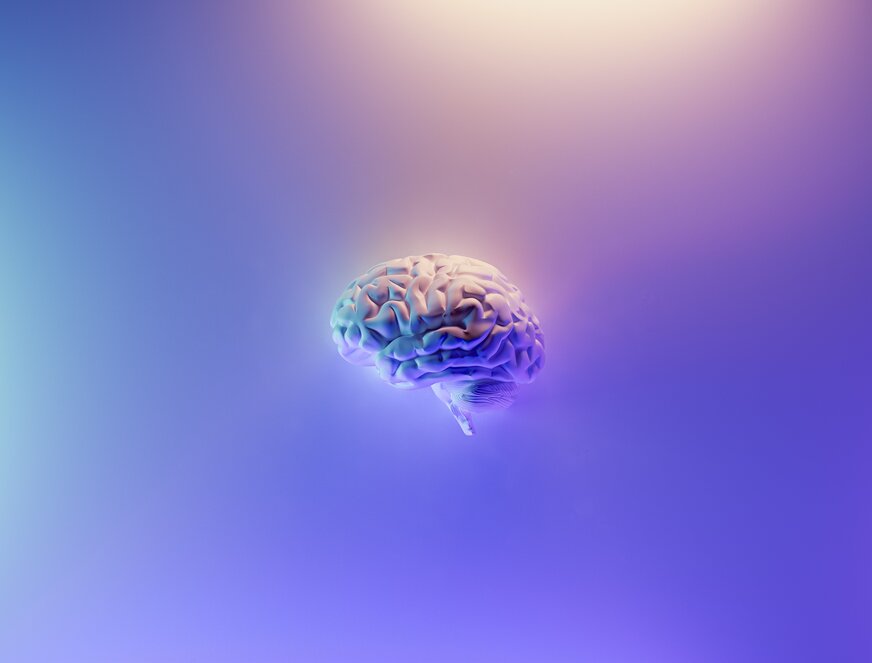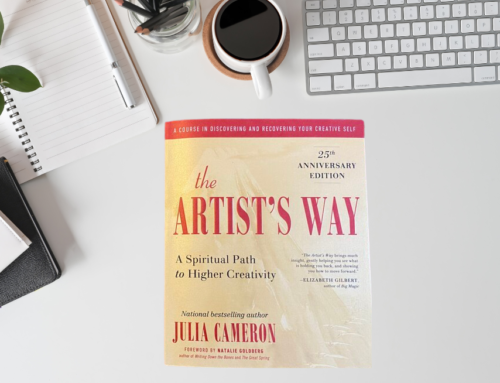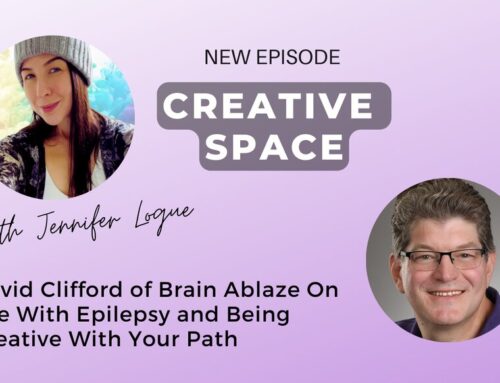So what is living with epilepsy really like? Where do I even begin?
When I first tell people I have epilepsy, the reaction is usually met with one of the following reactions: sympathy, annoyance, avoidance or disgust.
In writing this, I definitely don’t want your sympathy or have the time and energy to even address those other three reactions. But I hope it inspires a little empathy, not just for me, but for anyone living with epilepsy.
It’s a heavy burden to carry, even if on the surface, a person seems vibrant and healthy. It takes a lot of work behind the scenes to get to that point and maintain it. And some people living with epilepsy aren’t even fortunate enough to know what it’s like to have seizures under control.
I’m one of the lucky ones. I found a medication that controls my seizures, but the story doesn’t end there.
Given there’s no cure for epilepsy, I depend on a twice-a-day pill for my survival. In the last eight years since getting diagnosed, I only missed taking it once and had a panic attack when I realized my mistake.
Since getting diagnosed after a series of tonic-clonic seizures, I’ve fought hard to be the person I was before epilepsy—the free spirit who could burn the midnight oil and still wake up for a run the next day. That’s what our work hard play hard culture has celebrated for the longest time.
But my brain is different. I am different. And I finally feel brave enough to be completely open about what living with epilepsy has really been like for me.
My brain the bomb
Imagine for a second that your brain could completely shut down at any time, without warning. That’s how I felt when my tonic clonic seizures first started. I’d be out and about, going to a yoga class or grabbing a water inside of a Duane Reade, when all of a sudden, I’d wake up in an ambulance or a hospital—completely wiped out with a sore tongue. (Sometimes we bite our tongues.)
As a creative my brain is my best friend, but as an epileptic, it’s also a bomb. And it has to be handled ever so gently to not be detonated.
Before I found a medication that worked, I was afraid to leave my apartment. I was even afraid to go to sleep without friends crashing on my couch. SUDEP (Sudden Unexplained Death in Epilepsy) was on my mind a lot back then, especially given that people with my kind of seizures have the highest risk.
Although my seizures are under control now, the fear doesn’t go away. Like a shadow, epilepsy goes everywhere I go—swimming, hiking, driving on the highway.
Before epilepsy, I was such a free spirit. After epilepsy, it’s really hard to completely lose myself in the moment, especially in what have become high risk moments.
The stigma
When I first got diagnosed with epilepsy, my neurologist at the time told me not to tell anyone unless I absolutely felt the need to. “You will be discriminated against. People may not want to hire you. You’re single, so dating may become more of a challenge if you disclose this to who you’re seeing right away.”
Looking back, I wish I hadn’t taken her advice. Being an artist, sharing my feelings and what I’m going through is just how I’m wired. Sweeping my epilepsy under the rug has taken an emotional toll over the years and keeping silent added so much weight to the burden of the diagnosis.
But she was right. There were a few times where I’ve disclosed in work situations and it didn’t go well. I’ll leave it at that. But there were also times when I was met with compassion and empathy, and those moments are like jewels in my memory. To be seen and understood at work, to not need to hide, to feel supported in who I am is absolutely priceless.
And as far as my love life, the first guy I dated after I got diagnosed was pretty straightforward after I told him. “Listen, you’re amazing, but I want to start a family and I don’t want my kids having that.”
As awful as it sounded, I appreciated his honesty.
The control required for seizure control
Part of treating epilepsy is avoiding your seizure triggers. My big ones are sleep deprivation, alcohol, and stress.
Remember that old me I was talking about? Free spirit burning the midnight oil and going for a run the next morning? That doesn’t happen anymore. It can’t.
My life has become very regimented out of necessity.
Earlier in my epilepsy journey, when I found a drug that worked, I fought hard to keep up with everyone else like I used to—but at a cost. Even one drink, one bad night of sleep would destroy me the next day. Part of it was the anxiety that comes with knowing I’ve lowered my seizure threshold and the other part was that my life-saving medication comes with a lot of side effects.
That’s why I finally gave up alcohol completely. That’s why I have to turn down events if they’re after a certain time. Seizure control requires being a control freak and sometimes, it feels like I’m living a half life, especially when I see how much fun the rest of the non-epileptic world is having. Other times, I feel guilty for not being able to support my friends at shows and premieres they’re having. Lately though, I’ve become more accepting of myself. And there is a bright side. I will never, ever have a hangover again!
Medication side effects
Seizure control comes with another price and that’s in the form of medication side effects. Anxiety, insomnia, depression, crying, aggressiveness, quick to react or overreact emotionally, unusual tiredness—those are just a few side effects from my medication.
And managing side effects is just as time consuming as managing seizure triggers.
Over the years, I’ve become the healthiest person I know, which has its benefits, but it can also be very restrictive. As new side effects creep up (like my recent issues with insomnia), new measures are taken, like giving up caffeinated coffee.
Sure, I could take another pill, but my first course of action is going the natural route—making diet changes, changing up my workouts, journaling, therapy, learning to be more compassionate with myself, etc.
On the subject of working out, that has to happen every day for my brain to work. Otherwise I’m just in a fog. It’s almost as if there’s a net around my brain.
And eating super clean? That’s another must. It takes a lot of energy to process complex dishes, and while I do it once in a while socially, I pay the price afterwards.
Even after managing everything perfectly, I’m still not 100% pre-epilepsy me. At best, I’m working with 80% of who I used to be. But that’s okay. Every day that I’m seizure free is a blessing and God wouldn’t have given me this battle if he didn’t think I could handle it.
The isolation
As you can probably imagine, I’m not a whole lot of fun to hang out with if plans revolve around dining out, drinking and staying out late.
It’s made dating pretty difficult and for people who are single with epilepsy, like me, the isolation can be really tough.
Also, as I get older, so many of my friends have gotten married and started families, and the last thing I want to do is burden them with my challenges. They have enough on their plate.
Luckily, I have creativity. I always say creativity has saved my life, and part of that has to do with epilepsy and the isolation that comes with it.
Even though I don’t have a partner who I can confide in, I can always write something. I can always play the piano. I can always sing my heart out. My creativity empowers me so much, I don’t know how anyone could live without it. I certainly couldn’t.
But even when you do have a partner, no one truly understands what it’s like to live with epilepsy, even if they’re living with you. Until you live it, you’ll never fully understand. That’s why support groups are so important, and I wish there were more of them.
Limited mobility
This is one that most people don’t think about. I have friends invite me out all the time, and maybe it’s for a party a 30-minute drive away. Seems simple, right? Get in your car and go. Have fun. Live a little!
But some people living with epilepsy have a lot of PTSD around driving. There have been periods in my life where I’ve felt great and it wasn’t an issue at all, but lately because of the insomnia, I’ve had to limit my driving to backroads and only during the daytime hours.
I tried pushing myself a few months ago and ended up having a panic attack and had to pull over. My friend, who was visiting from LA, took an Uber to meet me and drive my car back.
It’s situations like this that make me want to stay home, unless I can get a ride. I’ll take an Uber here and there, but being on a budget, it’s not always possible.
If you know someone with epilepsy, especially if they live alone, ask them if they need a ride to that party you’re having or the concert you’re going to. More often than not, they’d never ask outright.
For me, it’s gotten to the point where I’m contemplating moving back to New York City or any city with solid public transportation. Having limited mobility really puts a damper on your quality of life.
In the meantime, I am holding onto hope that my insomnia gets better and I can keep my little house in the suburbs.
Closing thoughts
I could write a book about my experience with epilepsy so far. And it hasn’t all been bad. There have actually been many silver linings to learning to live well with epilepsy.
Living well with epilepsy is possible by the way.
Part of it comes from redefining what success is, what happiness is, and what fulfillment is. And part of it comes from being open and vulnerable, communicating what your needs are and what you’re going through to the people in your life.
If you’d like to learn more about epilepsy, check out the Epilepsy Foundation website here.
You can also support people living with epilepsy by signing up for Seizure Recognition and First Aid Certification here.
If you’d like to hear more about my epilepsy journey and how it’s affected my creative life, you can listen to my podcast episode here.





I have controlled epilepsy too. I never thought of it the way you broke it down. It’s true how all these little decisions you make every day are part of a bigger picture.
Laura! Thank you so much for sharing. It means a lot to see how you relate as a fellow epilepsy warrior. <3 <3 <3